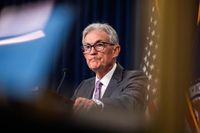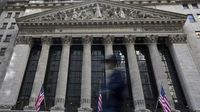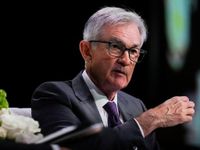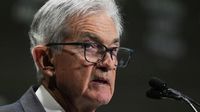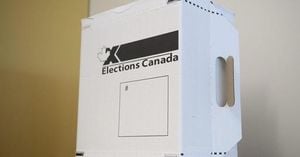On Thursday, April 17, 2025, President Donald Trump escalated his ongoing feud with Federal Reserve Chair Jerome Powell, calling for his immediate termination and expressing frustration over the central bank's interest rate policies. Trump's comments came just hours after Powell delivered a speech at the Economic Club of Chicago, where he defended the Fed's independence and indicated that the central bank would maintain its current interest rates while awaiting clearer signals on the economy.
In a post on his social media platform, Truth Social, Trump stated, "Powell's termination cannot come fast enough!" This remark underscores the president's growing impatience with Powell, whom he initially nominated in 2017. Powell's current term is set to expire in May 2026, and he has previously asserted that he would not resign if asked by Trump.
Trump's frustration stems from the Fed's decision to keep interest rates unchanged, which he believes hampers economic growth. He has consistently urged the Fed to lower rates to stimulate borrowing and consumer spending, particularly in light of recent tariff policies that he argues should not hinder economic progress. "Powell should have lowered interest rates, like the European Central Bank, long ago, but he should certainly lower them now," Trump wrote.
On the same day, the European Central Bank announced a reduction in its key interest rate from 2.5% to 2.25%, further fueling Trump's criticism of Powell for not following suit. The Fed's current interest rate sits between 4.25% and 4.50%, a stark contrast to the ECB's recent move.
Powell's speech addressed the potential economic impacts of Trump's tariffs, which he warned could increase inflation and slow down job growth. He stated, "The Fed will base its decisions solely on what is best for all Americans," emphasizing the importance of the Fed's independence from political pressure. He added, "Our independence is a matter of law. We’re not removable except for cause. We serve very long terms, seemingly endless terms." This statement was met with applause from the audience of economic executives, highlighting the support for the Fed's autonomy.
Despite Powell's reassurances, Trump's comments have raised concerns among lawmakers and economists. Senator Elizabeth Warren, a prominent critic of Trump, warned that allowing the president to fire Powell could lead to a market crash. Speaking on CNBC, she stated, "If Chairman Powell can be fired by the president of the United States, it will crash markets in the United States." Warren emphasized that the independence of the Fed is crucial for maintaining stability in the financial markets.
The backdrop of Trump's attacks includes a legal case currently before the Supreme Court that could determine whether presidents have the authority to dismiss leaders of independent agencies like the Fed. The court's decision, expected later this year, could have significant implications for the future of the Federal Reserve and its leadership.
As tensions between the White House and the Fed mount, the stock market has shown signs of volatility. On Thursday, the Dow Jones Industrial Average fell by 500 points, or 1.26%, while the S&P 500 rose by 0.3%. The mixed results reflect investor uncertainty amid Trump's escalating rhetoric and the Fed's cautious stance on interest rates.
Powell's prior warnings about the economic consequences of Trump's tariffs have not gone unnoticed. Many economists view the tariffs as an unprecedented economic shock that could lead to higher inflation and slower growth. The Budget Lab at Yale University estimated that the increased inflationary pressures from the tariffs could result in a loss of approximately $4,900 for the average U.S. household.
In recent months, the Fed has maintained a steady interest rate after a series of cuts in early 2024, but the ongoing uncertainty surrounding fiscal policy and trade negotiations has complicated the Fed's decision-making process. Trump’s aggressive tariff hikes, which include a 145% increase on Chinese imports, have contributed to fears of a recession and have led to increased scrutiny of the Fed's policies.
Wall Street analysts have expressed concern about the potential for stagflation—an economic condition characterized by stagnant growth and high inflation—if the Fed is unable to respond effectively to the challenges posed by Trump's tariffs. The situation is further complicated by Trump's shifting trade policies, which have left businesses uncertain about future economic conditions.
As the political landscape continues to evolve, the relationship between Trump and Powell remains a focal point for investors and policymakers alike. While Trump has publicly criticized Powell, some of his economic advisors, including Kevin Hassett, have suggested that there will be no political coercion over the Fed.
As the nation approaches the summer, all eyes will be on the Supreme Court's ruling regarding the president's authority over independent agencies and the Fed's response to ongoing economic challenges. With Trump's tariffs and Powell's leadership under scrutiny, the implications for the U.S. economy and financial markets are profound and far-reaching.
In summary, Trump's recent comments about Powell and the Fed highlight the ongoing tensions between the White House and the central bank, raising questions about the future of monetary policy and its impact on the American economy.
